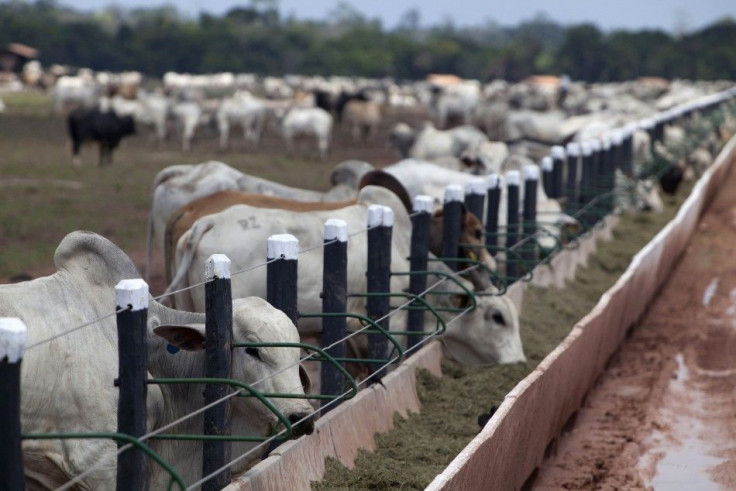Australia-China Beef Deal To Boost Aussie Economy By $1.8B

The $1 billion agreement between China and Australia that would result in the export of 1 million cattle to the Asian giant would also boost the Aussie economy by $1.8 billion. The deal is expected to be officially finalised on Monday by Australian Prime Minister Tony Abbott and Chinese President Xi Jinping on the sidelines of the APEC Summit hosted by Beijing.
The deal, said Australian Agriculture Minister Barnaby Joyce, would likely increase the price of cattle and boost income of local farmers.
The deal is expected to boost Australia's current live export number to twice its current level, but critics want to end the country's live animal export industry because of cruelty-to-animal issues.
It could be recalled that Australian live animal export had problems in Indonesia and some Middle Eastern countries due to the way the cattle and sheep were treated at abattoirs and even while on board cargo ships.
"I recently called the Federal Government a pack of sadists when it comes to animal welfare. Turns out evil death cult would have been a better description as far as the live animal export trade is concerned," ABC quotes independent MP Andrew Wilkie.
But Northern Territory Cattlemen's Association CEO Tracey Hayes defended the agreement which is expected to bring back a level of confidence among cattle producers in the Northern Territory as they recover from the 2011 blanket ban of live cattle export to Indonesia.
"It's really great for producers to start to have an increase in farm gate returns so they can invest back in their businesses and pay back some debt - all those things that really lend itself to a healthy community," 9News quotes Hayes.
Hayes, though, agrees that NT cattle raisers are not in a position to supply the expected demand of 1 million cows based on their current cattle stock.
China imported about 78,000 head of dairy cattle and another 15,000 beef cattle from Australia in 2013. NT cattle is also in high demand in Vietnam and Cambodia, Hayes said.
YouTube/BizAsiaAmerica
The $1.8 billion figure is just an initial estimate. It could go higher if two-way trade between Beijing and Canberra would also expand in the future.
However, Opposition leader Bill Shorten is seeking more details on the deals between the two trading partners so he could compare it with the deal that New Zealand secured that would result in significantly higher milk export to China.
Shorten said, quoted by The Australian, "I think a trade agreement is good if it works for your national interest. A trade deal is bad if it doesn't. We're interested in the creation of jobs and trade but not necessarily just signing up to anything like a blank cheque."





















